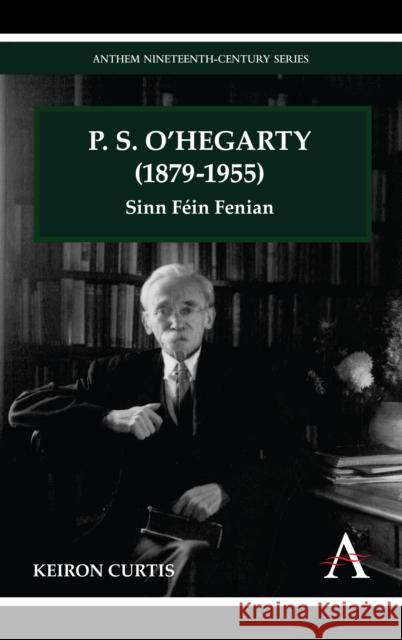P. S. O'Hegarty (1879-1955): Sinn Féin Fenian » książka
P. S. O'Hegarty (1879-1955): Sinn Féin Fenian
ISBN-13: 9780857285713 / Angielski / Miękka / 2012 / 190 str.
P. S. O'Hegarty (1879-1955): Sinn Féin Fenian
ISBN-13: 9780857285713 / Angielski / Miękka / 2012 / 190 str.
(netto: 121,75 VAT: 5%)
Najniższa cena z 30 dni: 127,05
ok. 30 dni roboczych
Dostawa w 2026 r.
Darmowa dostawa!
'P. S. O'Hegarty (1879-1955)' provides a well-researched and engaging biography of a major figure within Irish nationalist politics. Standing at the epicentre of Ireland's revolution, this ardent separatist provided much original thinking on the central concerns of his day. Using O'Hegarty's fertile mind and prodigious literary works as a guide, this book explores the far-reaching political and cultural issues of early 20th century Ireland, such as what is meant by 'nation' and national identity, cultural and political tolerance, Republican Liberalism, and the nature (as well as the clash) of religion and the state. Of these and other important subjects still relevant today, O'Hegarty was a prolific writer and essayist, notably championing liberal and progressive ideas far ahead of his separatist contemporaries. Spanning Ireland's cultural and political revolution in the early 20th century, his career offers interesting insights into this crucial period, as well as the social and political clime of the Free State. His writings cast a keen and often iconoclastic eye on the developing Irish nation he helped create both as a noted Civil Servant and a social and literary critic. Given that O'Hegarty is a name known to many Irish specialists, this full review of his separatist career will be a welcome addition to the growing canon of historical biographies of previously overlooked leading figures in this period. This biography also breaks new ground in revealing unknown aspects of this great figure's personality and life story. O'Hegarty has remained largely absent in the literature dealing with a revolutionary period to which he greatly contributed. O'Hegarty counted among his inner circle political heavyweights such as Sinn Fein leader Arthur Griffith, IRB leader Michael Collins, and Bulmer Hobson, arguably the individual with whom he stood closest in political outlook. Despite sometimes quarrelling, O'Hegarty remained a source of wise counsel to all these men. Admired by both Griffith and Collins, O'Hegarty was privy to many private conversations and documents that reveal exciting new source material for the study of this crucial period relevant in shaping modern Ireland. Working within hugely influential movements such as Sinn Fein, the IRB, and the Gaelic League, P. S. O'Hegarty was often the thrusting sword from which the most stinging precise blows landed against the Irish Party and British rule in Ireland.











